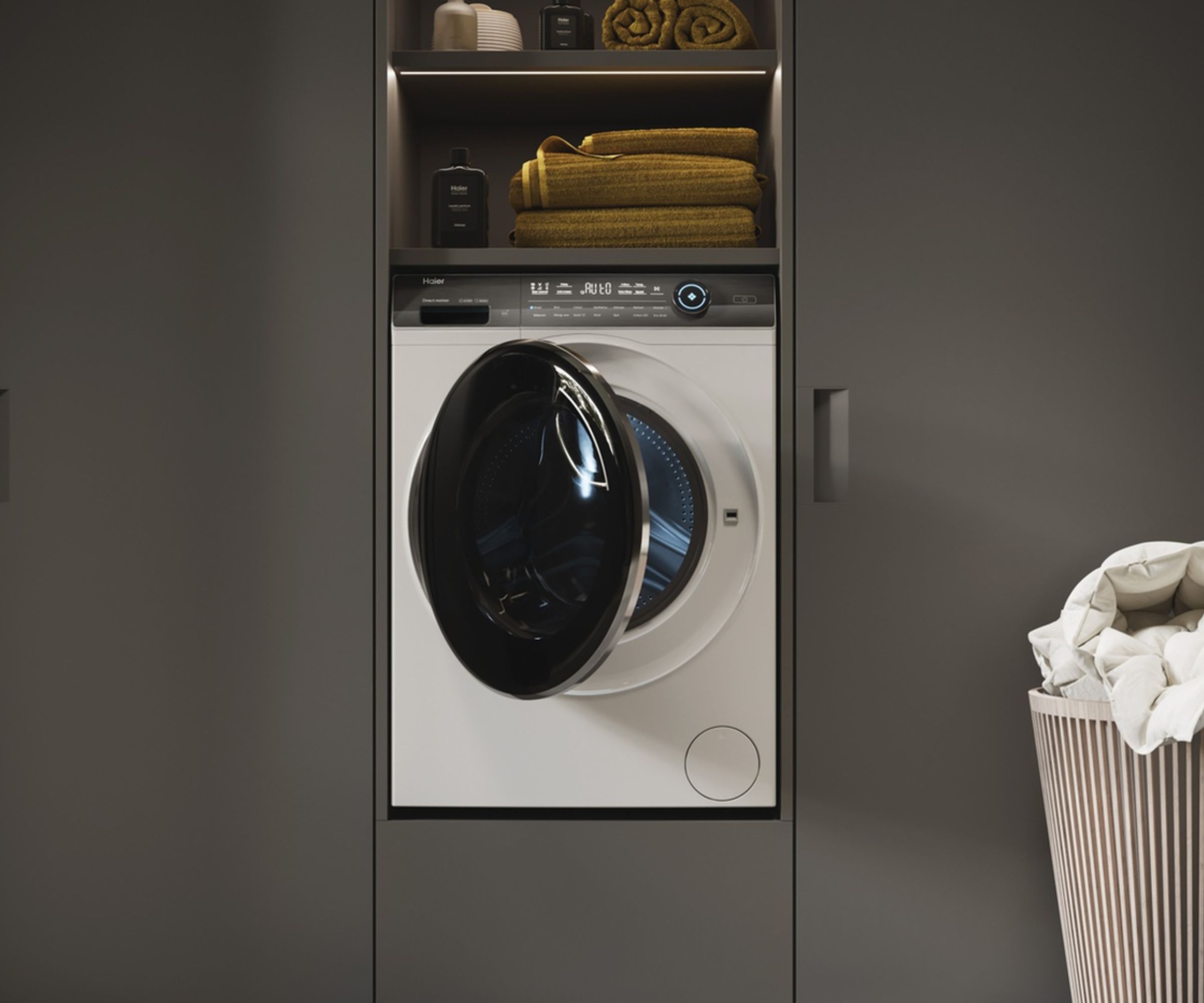Experts reveal why you should always leave your washing machine door open between washes
Dark, humid, and damp, the inside of your washing machine is the perfect germ breeding ground


Are your clothes coming out of your washing machine smelling musty? You might initially think it is due to a low-temperature wash cycle or not using enough detergent, but a common mistake people make is not leaving the washing machine door open between washes.
Of course, cleaning your washing machine regularly will rid your appliance of bacteria buildup, but if unpleasant smells are a problem you are having to tackle again and again, it’s worth knowing that there’s a way to cut down on all this maintenance, and that is by simply leaveing your washing machine door open between washes.
‘Washing machines are dark, damp places, which, without proper ventilation can be the perfect environment for mold growth. As a result, your laundry may develop musty mold or mildew smells,’ explains Yessica Bello, owner and principal cleaner at Bello's Cleaning.
Is leaving your washing machine door open the best way to avoid mold growth?
Just as opening a bathroom window after a shower will stop condensation and mold buildup, ventilating your washing machine’s drum by keeping its door open between washes will largely discourage mold growth in the first place.
'Leaving the washing machine door closed when it’s not in use can trap moisture inside it and the rubber seals of the door, which will allow mold and bacteria to grow inside it since these are organisms that thrive and breed in humid and damp environments,' explains Fantastic Services' appliance technician, David Miloshev.
'To prevent such issues with your washing machine, you'll need to always leave the door open or at least slightly ajar after each wash to provide the inside of the appliance with enough air circulation.'
Musty smells aren’t the only side-effect of leaving a washing machine’s door open between washes, if left unchecked, over time mold can also do permanent damage to the door seal, meaning that it will eventually need to be replaced. It can also spread fairly quickly to other areas of the washing machine, such as the detergent drawer and behind the drum itself. We explore how to get rid of black mold in our dedicated feature.
Design expertise in your inbox – from inspiring decorating ideas and beautiful celebrity homes to practical gardening advice and shopping round-ups.

Mold can grow in the drum of any poorly ventilated washing machine, however, it is much more likely to be a problem in front-load washers than in top-load models, since these appliances have rubber door seals that not only create an air-tight environment, but also provide a hospitable surface for mold to grow.
While you might think that hot washes will go a long way to killing off mold, they also provide the perfect humidity levels for growth if you immediately close the washing machine door after unloading your laundry, or if you regularly leave wet washing to languish in the machine before you unload it and hang it out to dry.
'Leaving the front door of a front-load washing machine open is crucial because if you keep it closed, the water and humidity inside will cause mold to form on the rubber of the door's edges,' explains Hannah Jones, home improvement expert at New Build Homes. 'It will lead to smells and door malfunctions, and generally, it's not good for your washing machine.'
Luckily, it's fairly easy to remove mold from rubber door seals on washing machines, all you need is a good washing machine cleaner, such as this top-rated buy from Amazon, which cleans, deodorizes, and descales the machine.
FAQs
How long should I leave my washing machine door open to dry out?
If you can leave your washing machine door open the whole time between washes, it will dry out throughout the day; however, even just opening the door for a few hours, perhaps while your laundry is drying, will help avoid mold growth.
Why does my washing machine still smell even after I’ve left the door open?
If you have cleaned your washing machine thoroughly, but your laundry is still smelling musty, it might be because mold and mildew have built up in the parts of the machine that you can’t see or reach. In this case, it is best to call your manufacturer’s maintenance department for help and advice rather than take the appliance apart which will likely void your warranty.
Remembering this simple action after every wash can help your laundry have cleaner washes and can extend the lifespan of your washing machine, preventing the rubber seals from deteriorating prematurely due to constant exposure to moisture.
As well as leaving the washing machine door open when it’s not in use, ensuring the laundry room itself is well-ventilated will help the washing machine drum stays as dry as possible.
If you’d rather not have the door or a window open, investing in one of the best dehumidifiers can help stop mold growth in your laundry room.

Lola Houlton is a news writer for Homes & Gardens. She has been writing content for Future PLC for the past six years, in particular Homes & Gardens, Real Homes and GardeningEtc. She writes on a broad range of subjects, including practical household advice, recipe articles, and product reviews, working closely with experts in their fields to cover everything from heating to home organization through to house plants. Lola is a graduate, who completed her degree in Psychology at the University of Sussex. She has also spent some time working at the BBC.